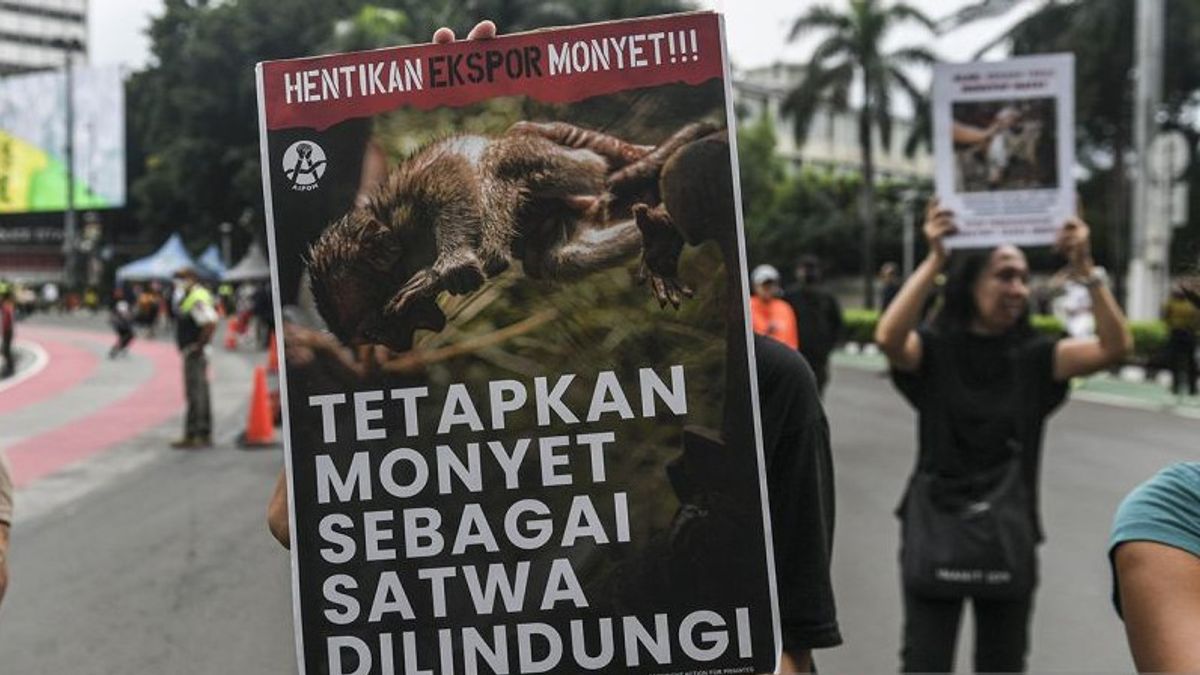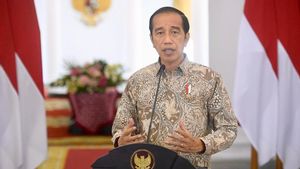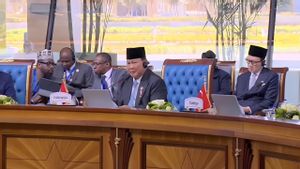JAKARTA - The Ministry of Environment and Forestry (KLHK) revealed the reason for not setting long-tailed monkeys as protected animals because the primates are currently not threatened with extinction.
"From various references and several survey results in several locations have not shown data or criteria that the long-tailed monkey species must be protected," said Director General of Natural Resources and Ecosystem Conservation of the Ministry of Environment and Forestry, Satyawan Pudyatmoko when contacted in Jakarta, Tuesday, January 30, was confiscated by Antara. Satyawan explained that long-tailed monkeys are a type of animal scattered on the islands of Sumatra, Kalimantan, Java, Bali, West Nusa Tenggara (NTB), and East Nusa Tenggara (NTT).
They can live in various types of habitats, such as secondary forests, forest edge areas, river edge areas, plantations and agriculture, and can live in mangrove forests on the coast. The fame forms a colony with several males and females led by one male alpha. The number of females is generally more numerous than males. Currently, long-tailed monkeys are one of the types internationally traded. "Long-tailed monkeys are not protected animals in Indonesia, but are included in the Appendix II CITES (Convention on International Trades in Endangered Species of Wild Fauna and Flora)," he said.
SEE ALSO:
In some areas, especially Java and Sumatra, long-tailed monkeys are reported to be disturbing humans, agricultural and livestock land, as well as settlements.Based on the process of assessing the score of Non Detriment Finding (NDF) in long-tailed apes including in the category of positive' criteria. This means that the population of long-tailed apes in Indonesia can be exploited through the quota mechanism. Even though it is included in the positive category, it is included in the neutral category which shows the need for annual monitoring to observe the trend of the long-tailed ape population in Indonesia. In particular, the population of long-tailed apes must be monitored periodically after utilization or harvest to assess its impact on population sustainability. Based on Government Regulation Number 7 of 1999, the species requirement must be protected when there is a significant decrease in population in nature, small population size, and limited population distribution. Previously, a number of animal activists carried out several theoretical actions that demanded the government so that long-tailed and rotary monkeys immediately become protected animals.
The theatrical action was held in several places ahead of Indonesian Primata Day 2024, one of which was during a motorized vehicle free day at the Hotel Indonesia Roundabout, Jakarta, Sunday, January 28, 2024. Animal observer activists asked the Minister of Environment and Forestry Siti Nurbaya Bakar to assign long-tailed and monkey-tailed monkeys as protected animals because the two animals were often exploited, one of which was the action of a monkey mask. Previously, Satyawan Pudyatmoko said that several regions already had rules prohibiting the activities of commercial performances of monkey masks. "For monkey masks, they have actually been banned in several areas," he concluded.
The English, Chinese, Japanese, Arabic, and French versions are automatically generated by the AI. So there may still be inaccuracies in translating, please always see Indonesian as our main language. (system supported by DigitalSiber.id)
















